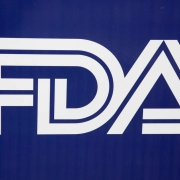FDA puts clinical hold on Roche BTK inhibitor multiple sclerosis program
FDA puts clinical hold on Roche BTK inhibitor multiple sclerosis program
Published: Dec 05, 2023
By Tristan Manalac
BioSpace
The FDA last week slapped a partial clinical hold on the multiple sclerosis clinical development program of Roche’s investigational BTK inhibitor fenebrutinib following potential cases of liver injury.
Two patients enrolled in the blinded Phase III FENhance program in relapsing multiple sclerosis (RMS) experienced abnormal elevations in hepatic transaminase levels—coupled with heightened bilirubin concentrations—after receiving fenebrutinib, according to an announcement from Roche subsidiary Genentech. These biomarker changes could be “suggestive of drug-induced liver injury,” the company contends.
Both patients were asymptomatic and biomarker levels normalized after discontinuing the study drug.
Due to the clinical hold, Roche will not enroll new patients into the FENhance I study in the U.S., though enrollment in sites outside the country will continue. Patients already in a fenebrutinib clinical trial and who have been taking the study drug for more than 70 days can continue treatment. However, those patients who have been receiving fenebrutinib for 70 days or less will discontinue the intervention.
Two other studies under the FENhance program—FENhance II in RMS and FENtrepid in primary progressive MS—are already fully enrolled.
“Patient safety is Genentech’s highest priority,” the Roche subsidiary said in a statement, adding that the company is also “working closely” with study investigators and the independent data monitoring committee to assess and resolve the liver toxicity episodes.
Designed to be orally available, fenebrutinib is an investigational and reversible blocker of the BTK enzyme, which is crucial to the development and activation of B-cells and other innate immune system cells including macrophages and microglia. This dual inhibition of B-cell and microglia action allows fenebrutinib to potentially ease the disease activity of MS, while also stemming the progression of disability in patients living with the condition.
In May 2023, Genentech announced that fenebrutinib aced the Phase II FENopta study, significantly reducing brain lesions in patients with RMS versus placebo.
This mid-stage victory would have allowed Roche to catch up to its other powerhouse competitors in the BTK space, including Sanofi, Merck and Biogen, whose BTK inhibitor candidates are all under FDA clinical holds—also due to safety concerns.
Sanofi’s tolebrutinib was hit with the regulatory pause in June 2022, as was Biogen’s orelabrutinib, which it was developing in partnership with InnoCare Pharma. In February 2023, Sanofi dropped the myasthenia gravis program for tolebrutinib, while Biogen turned its back on orelabrutinib completely and returned all rights to the Chinese biotech.
Merck’s BTK inhibitor evobrutinib was placed on partial hold in April 2023. All three candidates were paused due to episodes of potentially drug-induced liver injury.
Source: BioSpace


 Reuters
Reuters






